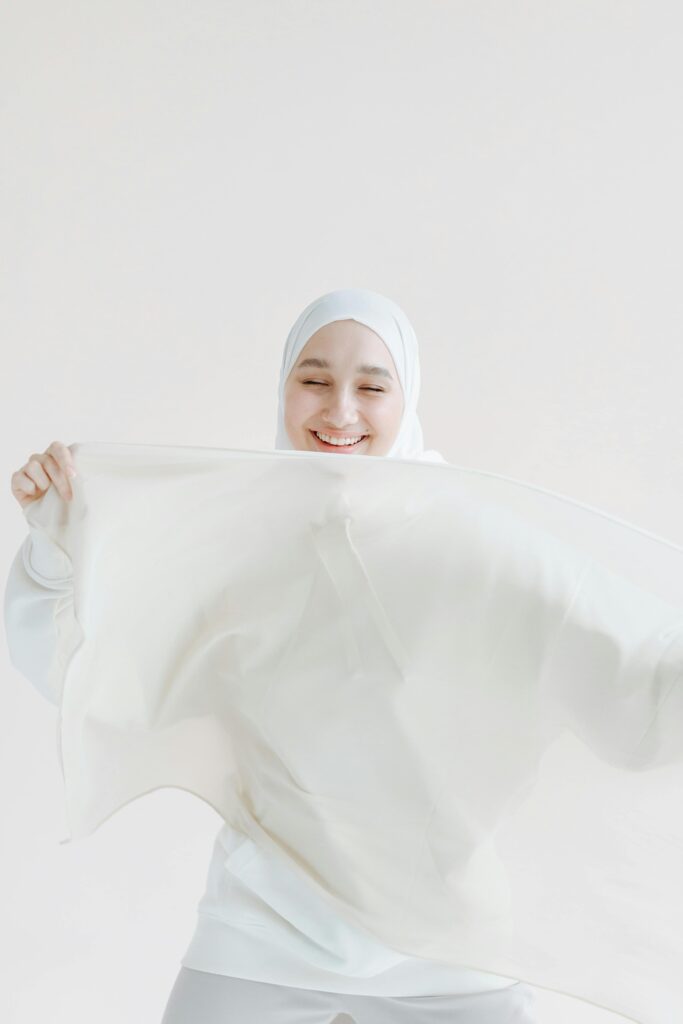Ever wondered why muslin feels so good on your skin, especially in the summer? It’s not magic—it’s smart design. Let’s dig into the science behind why muslin is one of the most breathable, skin-friendly fabrics on the planet.
The Weave Structure: Breathability at Its Best
Muslin is a plain weave fabric, made by crisscrossing warp and weft threads in a simple over-under pattern. This minimal tension weave results in a fabric that is lightweight and full of micro-gaps, allowing optimal air circulation. This unique structure is why muslin is often used in swaddles, baby blankets, and summer clothing.
The light weave allows heat to escape and air to circulate freely, making muslin an excellent choice for tropical and humid climates. This is why muslin garments are a summer essential and why doctors often recommend it for heat-prone individuals.
High Absorbency = All-Day Comfort
Muslin can absorb up to 27 times its weight in water. This makes it ideal for absorbing sweat and excess moisture, keeping your body cool and dry. In contrast, synthetic fabrics often trap heat and perspiration, which can cause irritation and discomfort.
The absorbency also makes muslin a practical choice for baby care, yoga towels, and even beauty treatments. Its moisture-wicking properties help maintain hygiene while ensuring comfort.
Naturally Soft, Grows Softer
One of muslin’s most endearing features is its tendency to become softer with every wash. This is because the cotton fibers begin to relax, making the fabric more supple over time. Unlike other fabrics that wear down, muslin ages gracefully.
This characteristic also enhances comfort, particularly for people with skin sensitivities. The more you use muslin, the more it adapts to your skin, offering a personalized feel that few fabrics can match.
Hypoallergenic and Skin-Friendly
Because muslin is made from 100% natural cotton, it’s free from harsh chemicals or synthetic blends. This makes it safe for babies, people with allergies, and those with sensitive skin. It’s also breathable enough to prevent heat rashes and skin irritation, making it a doctor-recommended option for warm-weather wear.
Muslin’s hypoallergenic nature also makes it ideal for products like reusable face cloths, baby swaddles, and summer bedding. It’s not just a fashion fabric—it’s a wellness fabric.
Comparing Muslin With Other Fabrics
Muslin vs. Polyester: Polyester may look smooth but it doesn’t allow air flow and traps sweat. Muslin is naturally breathable.
Muslin vs. Linen: Linen is great but wrinkles easily and can feel stiff. Muslin is lighter, softer, and more affordable.
Muslin vs. Cotton Poplin: While both are cotton-based, poplin is tighter woven and heavier. Muslin is airier and better for heat regulation.
Final Words
Muslin isn’t just stylish—it’s scientifically superior when it comes to comfort, breathability, and skin safety. Whether you’re dressing for the summer, decorating your home, or wrapping a newborn, muslin is the smart, sustainable choice. At Muslin Factory, we bring this marvel of material science straight to your doorstep—explore our collection today.
LINK : MUSLIN FACTORY







